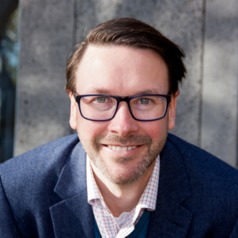
Matthew Nurse
Associate lecturer, Australian National University
PhD (ANU)
Master of Science Communication (ANU)
Master of Communication (Deakin)
Less ![]()

Matthew Olczak
Reader in Economics, Aston University
Dr. Matthew Olczak is a Reader in Economics and currently Head of the Economics, Finance & Entrepreneurship Department at Aston University.
His research is in the areas of industrial organisation and competition policy and sports economics. This has been widely published in international economics and competition law journals. Furthermore, he is a co-author of a book on hub-and-spoke cartels that was published by MIT Press in 2022.
He has taught microeconomics, industrial organisation, competition policy and sports economics and finance. Matthew has a keen interest in using and researching technology, in particular online games, to enhance teaching and learning. He is a Senior Fellow of Advance HE and an Associate of the Economics Network.
Less ![]()
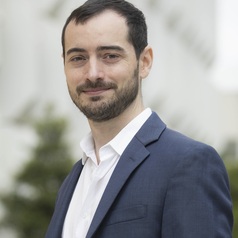
Matthew Pase
Associate Professor of Neurology and Epidemiology, Monash University
Matthew Pase is an Associate Professor (Research) at Monash University and an Associate Professor of Epidemiology at Harvard T.H. Chan School of Public Health, Harvard University. He is a current NHMRC Emerging Leader Fellow (EL2). He leads the Ageing Well Pillar at the Turner Institute for Brain and Mental Health, the Ageing and Neurodegeneration Research Program at the School of Psychological Sciences, and the Epidemiology of Dementia Lab.
He and his team aim to make dementia preventable for future generations by advancing our understanding of risk factors and early biomarkers. His research has contributed to a paradigm shift in thinking whereby managing vascular risk factors is now considered fundamental for preventing dementia. His research has reached a global audience of over 1.5 billion and has impacted current dementia prevention guidelines. In addition, Altmetrics have featured his research in the top 100 most impactful articles of all time out of over 17 million. Matthew leads several local and global initiatives, including the Brain and Cognitive Health (BACH) cohort, and is Co-PI of the NIA-funded Sleep and Dementia Consortium.
Less ![]()

Matthew Patterson
Postdoctoral Research Assistant in in Atmospheric Physics, University of Oxford
I am a postdoctoral research assistant in the climate dynamics and predictability groups. My primary interests are in atmospheric dynamics, prediction on seasonal to decadal timescales and climate change.
My current work concerns the effects of decadal variability of the sub-polar North Atlantic ocean on the mid-latitude atmosphere. This is part of the NERC-funded WISHBONE project in collaboration with the University of Reading, National Oceanography Centre and National Center for atmospheric research in the US. In relation to this project I also am a visitor at University of Reading.
Previously, I studied the role that global warming trends have on skill in seasonal prediction models for Europe, funded through the EUCP project (European Climate Prediction System) with Antje Weisheimer and Dan Befort. I found that warming trends play a strong role in summer temperature variability, hence providing a large amount of predictability. However, even with this skill coming from the external forcing, northern European temperature skill is low, suggesting systematic errors in the forecasts for this region. I have also worked on a project examining the variability of the East Asian jet stream and its relationship to forcing by sea surface temperatures on a decadal timescale. This was a collaboration between the Universities of Oxford and Reading, funded through the Met Office's CSSP China project
In 2020, I completed my PhD on the dynamics of the South Pacific split jet stream, supervised by Tim Woollings at Oxford and Tom Bracegirdle at the British Antarctic Survey. My research involved understanding the factors that shape the mean state, the variability of the jets and how they may change under climate change. In particular, I found that Antarctic orography makes a strong contribution to the wintertime jet structure, altering the behaviour of transient Rossby waves which reinforce the polar jet. A second key finding from my PhD was that the South Pacific jets are likely to become less split in future as a result of changes to stationary waves which arise because of alterations to wave sources at low latitudes.
Less ![]()
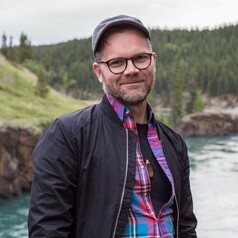
Matthew Pearson
Assistant Professor, School of Journalism and Communication, Carleton University
Following an award-winning career in print and broadcast journalism at the Smithers Interior News, the Ottawa Citizen, and CBC Radio, Matthew Pearson was appointed an assistant professor of journalism at Carleton University's School of Journalism and Communication in 2020. His research interest explores the intersections of journalism, trauma, and mental well-being, with a focus on preparing journalism students and working journalists to report on traumatic incidents and those affected by them, and to take care of themselves and colleagues afterward.
Less ![]()
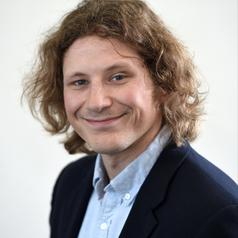
Matthew Piszczek
Assistant Professor of Management, Wayne State University
I received my PhD in industrial relations and human resources from Michigan State University. I worked as an assistant professor of human resource management at the University of Wisconsin Oshkosh before moving to Wayne State University. I have published numerous articles on human resource policy as it relates to workforce aging and work-life role management.
Less ![]()

Matthew Pittman
Assistant Professor of Advertising and Public Relations, University of Tennessee
My research interests revolve around social media and marketing communication strategy. I use mostly social scientific methods like surveys and experiments to understand how people can be persuaded to make good decisions in emerging media environments.
My work has been published in Journal of Consumer Psychology, Journal of Interactive Marketing, International Journal of Advertising, Journal of Consumer Marketing, Computers in Human Behavior, Journal of Business Ethics, and others. It can be found on Google Scholar.
Less ![]()
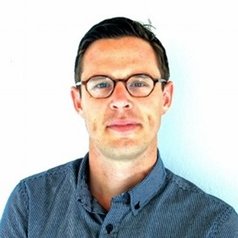
Matthew Powers
Associate Professor of Communication, University of Washington
Matthew Powers is Associate Professor in the Department of Communication, where he also co-directs the Center for Journalism, Media and Democracy. His research and teaching explore transformations in media careers, usually from a comparative perspective, and their societal implications. Currently, he is studying--with colleagues at the University of Washington--the feminization of statehouse reporting in the United States.
Powers received his Ph.D. in Media, Culture and Communication from New York University. Previously, he worked as a journalist at the Burlington Free Press in Vermont.
Less ![]()
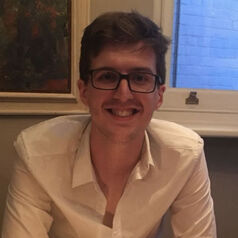
Matthew Priestley
Research Fellow, Department of Mathematics and Statistics, University of Exeter
I am a Research Fellow based at the University of Exeter. My research focusses on high impact weather associated with extratropical cyclones in the mid-latitudes, with a particular focus on Europe. My interests are on understanding historical variability, and also how weather events and associated extremes will change under climate change. I work extensively with those in the insurance/risk sector and provide research and tools for quantifying weather and climate extremes.
Less ![]()

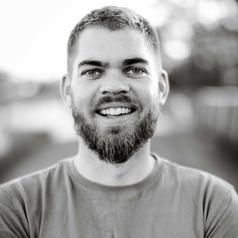
Matthew Rees
Postdoctoral Research Fellow, CSIRO
I am a wildlife ecologist researching how to effectively conserve nature and manage pest species. My research generally centres around estimating where animals occur and how many there are, as well as uncovering species interactions and measuring outcomes of ecosystem interventions.
Less ![]()
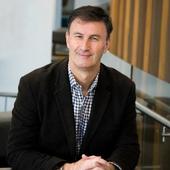

Matthew Robison
Assistant Professor of Psychology, University of Texas at Arlington
Dr. Robison's research examines some fundamental questions regarding the human cognitive system. He focuses largely on two core cognitive abilities: attention control and working memory. More specifically, his research tries to understand why people differ in these cognitive abilities. Why is it difficult for people to sustain and control their attention? How do our attention and memory systems interact to give rise to complex cognitive processes? He is particularly interested in determining what psychological and neural mechanisms that drive individual differences in cognitive ability. To answer these questions, he uses a combination of experimentation, psychophysiological measurement (e.g., EEG, pupillometry), and individual differences methods (e.g., factor analysis, linear mixed modeling, structural equation modeling).
Less ![]()
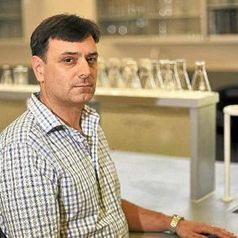
Matthew Rockloff
Head, Experimental Gambling Research Lab, CQUniversity Australia
Prof. Matthew Rockloff received a Ph.D. in psychology from Florida Atlantic University in 1999. Dr Rockloff is Head of the Experimental Gambling Research Laboratory at CQUniversity. Dr. Rockloff has been honoured as a Jack Walker Scholar and twice as an Aurel B. Newell Fellow. Dr Rockloff was named in the Top 10 Unijobs Lecturer of the Year Awards in 2012, 2013 and 2014.
Less ![]()
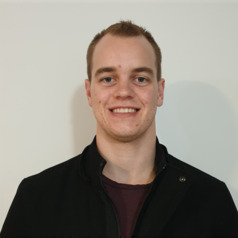
Matthew Ryan2
Postdoctoral CERC Fellow, CSIRO
Dr Matt Ryan is a researcher in mathematics and statistics working across a broad range of applications. Matt has explored research in Pure Mathematics, Statistics, and Applied Mathematics, and completed his PhD investigating novel statistical and predictive methods of analysing functional brain imaging data. Currently, Matt is investigating the interface of behavioural science and epidemiological modelling to understand the affects of realistic human behaviour on the spread of an infectious disease.
Less ![]()

Matthew Scotch
Associate Dean of Research and Professor of Biomedical Informatics, College of Health Solutions, Arizona State University
Matthew Scotch is Visiting Professorial Fellow at the Kirby Institute at UNSW. He is also Interim Assistant Dean of Research and Professor of Biomedical Informatics in the College of Health Solutions at Arizona State University (ASU), and Assistant Director of the Biodesign Center for Environmental Health Engineering. His research focuses on genomic epidemiology and bioinformatics of RNA viruses with a particular interest in influenza A viruses. Current projects include studying approaches to advance genomic epidemiology by enrichment of virus sequence metadata (funding: NIH/NIAID 1R01AI164481-01A1) and analysis of viruses from wastewater using bioinformatics (funding: NIH/NLM U01LM013129). The latter is partially funded by the NIH RADx-rad initiative.
His lab group is also interested in the molecular epidemiology of viruses including the amplification and sequencing of influenza A and B viruses for short and long-read high-throughput sequencing (HTS) and public health surveillance.
Less ![]()
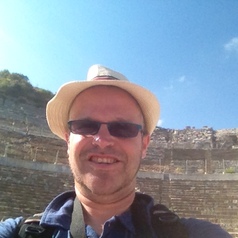
Matthew Sharpe
Matt Sharpe teaches philosophy at Deakin. He works on classical philosophy, rhetoric, and the history of ideas.
Less ![]()
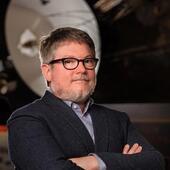
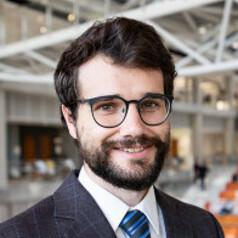
Matthew Skiles
PhD Student in Mechanical Engineering, The University of Texas at Austin
As an NSF Graduate Research Fellow, Matt has conducted systems analysis research as it relates to power grid operations and sustainability. Currently, he is focused on assessing the role of energy efficiency and demand response in increasing power grid resiliency during extreme weather events. As part of this research, Matt characterizes electricity demand profiles using the ResStock building energy model developed by NREL. He uses the ResStock model to generate building stock that is statistically representative of current residential housing and apply efficiency retrofits and equipment upgrades to investigate different development scenarios. He has also focused on investigating the impact that weather conditions have on electricity demand for historical severe weather events and future climate change scenarios.
Before joining The University of Texas at Austin, Matt earned a B.S. in civil engineering from the University of Wisconsin where he worked for several organizations conducting research to inform environmental and energy policy-making processes. After graduating, he worked as an engineer in the energy services industry implementing energy optimization projects at commercial and industrial facilities.
Less ![]()
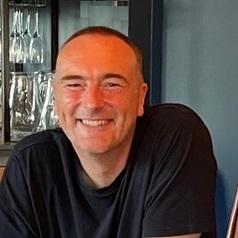
Matthew Steggle
Professor of Early Modern English Literature, University of Bristol
D.Phil., PGCLT
Less ![]()

Matthew Stewart
Postdoctoral Researcher, Harvard University
Matthew is a postdoctoral fellow at Harvard University in the Edge Computing Lab. His main area of research focuses on the development of embedded machine learning (aka. TinyML), machine learning sensors, and lifetime-aware system design. He also manages multiple projects including silicon photonics, designing and manufacturing flexible microprocessors, large language models for hardware-software co-design, benchmarking tools for robotics and reinforcement learning, and neuromorphic computing.
Less ![]()
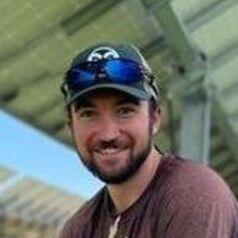
Matthew Sturchio
PhD Student in Plant and Ecosystem Ecology, Colorado State University
I am interested in plant physiology, global change ecology, and climate-carbon cycle feedbacks. My PhD research is focused on quantifying how photovoltaic (PV, a.k.a. solar panel) energy expansion might impact ecosystem process and their underlying physiological mechanisms in grasslands.
Less ![]()

Matthew Taliaferro
Assistant Professor of Biochemistry and Molecular Genetics, University of Colorado Anschutz Medical Campus
We study how the expression of genetic information is spatially regulated within a cell. Individual mRNA molecules are often trafficked to specific cellular locations. This facilitates robust, localized protein production where and when it is needed. Although thousands of mRNAs are asymmetrically distributed in cells, the RNA sequences and protein factors that regulate this process are unknown for the vast majority of messages. We use experimental and computational methods to understand mechanisms behind this regulation and how disruption of the process can result in neurological disease.
Less ![]()
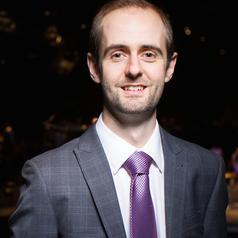
Matthew Tickle
Lecturer in Operations Management Operations and Supply Chain Management, University of Liverpool
Matthew Tickle is a Lecturer in Operations Management at the University of Liverpool. He holds a BSc and a PhD in Operations Management, both from the University of Liverpool. His PhD thesis created a framework for building and managing business-to-business virtual communities. He is a Senior Fellow of the Higher Education Academy as well as a Member of the Chartered Institute of Procurement and Supply.
Matthew is the Director of Studies for the MSc in Operations and Supply Chain Management and teaches both on campus and online.
Matthew’s research interests include Operations and Supply Chain Management, in particular Humanitarian Supply Chains, Quality management, and e-business tools and technologies. He has published in journals such as Technovation, International Journal of Quality & Reliability Management, Supply Chain Management: An International Journal, International Journal of Production Research, Production Planning and Control, and the International Journal of Logistics – Research and Applications. He has also been involved in ERDF, FP6 (PRO-INNO Europe), and KTP research projects.
Prior to his Academic appointment, Matthew worked as a project manager in the software development industry.
Less ![]()

Matthew Tyce
Lecturer in International Political Economy, King's College London
Dr Matthew Tyce is a British Academy Postdoctoral Fellow and Lecturer in International Political Economy at King's College London. Matthew's research sits at the intersection of development studies, comparative politics and international political economy. His research explores the political economy of state building and economic transformation under conditions of so-called ‘late’ (or ‘late-late’) development, with a particular focus on countries in sub-Saharan Africa. Matthew’s current British Academy research fellowship (2021-2024) is looking at the political economy of energy transition, renewable energy adoption and ‘green’ industrialisation in Ghana and Kenya.
Less ![]()
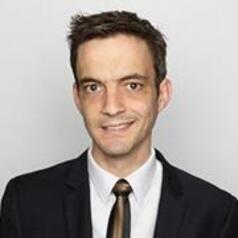
Matthew Walsh
Lecturer, Faculty of Law, University of Technology Sydney
Matthew Walsh is an Anaiwaan man and early career academic at the Faculty of Law University of Technology Sydney. Matthew's career has seen him lead a number of programs in Indigenous policy engagement and implementation across the government, higher education, corporate and not-for-profit sectors.
Less ![]()
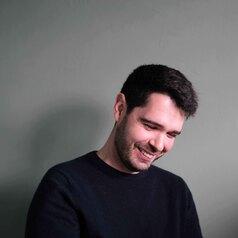
Matthew Wells
Lecturer in Architectural Humanities, University of Manchester
Matthew Wells is Lecturer in Architectural Humanities at University of Manchester and member of the Manchester Architecture Research Group (MARG). His research uses architecture and visual culture to examine society, institutions, and individuals in the long nineteenth century. Particular focus is given to the intersection between representational techniques, technology, and professional expertise in the built environments of Britain and Europe.
He studied art history at the Courtauld Institute of Art and completed his doctorate in the History of Design Programme at the Victoria & Albert Museum and the Royal College of Art. Before his appointment at Manchester he was junior faculty at the Institute for the History and Theory of Architecture (gta), ETH Zurich.
Wells is the author of two monographs Modelling the Metropolis: The Architectural Model in Victorian London (2023) and Survey: Architecture Iconographies (2021) and co-editor of An Alphabet of Architectural Models (2021). Recently his research has been published in Architectural History, the Burlington Magazine, JSAH, and the Journal of Art Historiography, as well as contributing to the Paul Mellon Centre’s Royal Academy Summer Exhibition: A Chronicle, 1769-2018.
His most recent book, Modelling the Metropolis, provides a new understanding of how Victorian London was conceptualised, debated, and constructed through architectural models. At a crucial moment of the London’s development, models were a vital medium of communication that enabled architects, politicians, and the wider public to conceive the city’s expansion of buildings and spaces. The research was awarded the Theodor-Fischer-Preis (2019) from the Zentralinstitut für Kunstgeschichte in Munich and commended in the RIBA President's Awards for Research (2017).
Additional research is concentrated in two areas. First, ‘Things of Modernity’, a new history of modern architecture researched through its material culture. Second, ‘Lines of Communication’ examines the relationship between architecture and the new forms of media that emerged in Britain and further afield.
Dr Wells welcomes enquiries from potential PhD students with interests in Victorian and Edwardian architecture in Britain; material and technical history of architecture; architecture and empire in the British World; any aspect of architectural professionalism and construction labour.
Less ![]()
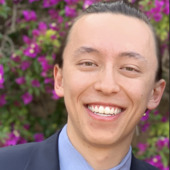
Matthew Westfall
Medical Resident in Internal Medicine, University of Colorado Anschutz Medical Campus
Less ![]()
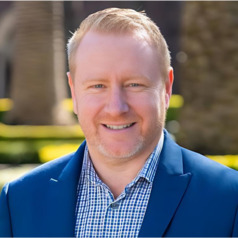
Matthew White1
Lecturer and Researcher Australian Catholic University, Australian Catholic University
Matthew White is a lecturer and researcher in Inclusive Education. He is an experienced teacher and school system leader. He has held roles guiding inclusive education and school attendance. His experience also includes supporting national and cross sector school policy as a senior policy officer with the NSW Department of Education.
His research centres on the interconnection of school wellbeing and inclusion, with a strong emphasis on multi-tiered system of supports and supporting students with attendance difficulties. His PhD study "Support for Students with Learning Difficulties Through a Universal Intervention Framework" examined the effectiveness of a systems approach to supporting the academic self-concept of adolescents with learning difficulties".
Matthew is particularly passionate about implementation science and the embedding of effective practices across educational settings.
Less ![]()
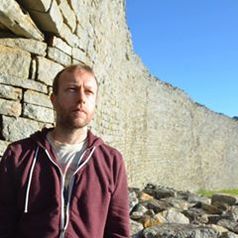
Matthew Wilhelm-Solomon
Writing fellow at the African Centre for Migration Studies, University of the Witwatersrand
Matthew Wilhelm-Solomon is a Writing Fellow on the Migration and Health Project Southern Africa, based at the African Centre for Migration & Society at the University of Witwatersrand (Wits).
Matthew holds a doctorate from the University of Oxford, which was ethnographic study of HIV/AIDS treatment programmes to displaced communities in northern Uganda. Over the past five years he has conducting research in inner-city Johannesburg on themes of migration, religion, health and housing. He is beginning new research looking at African migration to Brazil.
Matthew has published widely in different books and journals including Medical Anthropology, Critical African Studies and the African Cities Reader, and a number of newspapers and journalistic publications including the Mail & Guardian, Sunday Times, Chimurenga Chronic and the ConMag. He is presently completing a narrative book about unlawfully occupied buildings in inner-city Johannesburg. He is the lead editor on the forthcoming book 'Routes and Rites to the City: Mobility, Diversity and Religious Space in Johannesburg' to be published by Palgrave-MacMillan.
Less ![]()
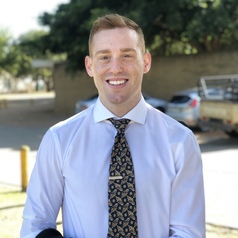
Matthew Wingfield
Postdoctoral fellow, Stellenbosch University
My research has broadly been focussed on social movements and questions of 'justice'. Ranging from spatial justice to environmental justice, I have done research on groups that have had to strategically leverage a range of resources to actualise South Africa's progressive constitutional rights. I have worked with groups such as Reclaim the City, the Climate Justice Charter Movement and the Philippi Horticultural Area Campaign, and in doing so, developed scholarship around concepts of 'slow activism', and more recently on temporality as a lens.
Less ![]()
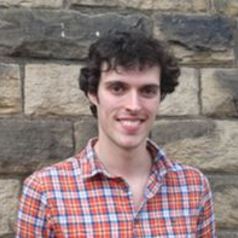
Matthew Wood
Postdoctoral Research Associate, University of Sheffield
Matt Wood is a postdoctoral research associate at the Department of Politics and Deputy Director of the Sir Bernard Crick Centre for the Public Understanding of Politics.
He has previously worked in local journalism and lobbying, and has held visiting fellowship positions at the UK Cabinet Office and ANZSOG Institute for Governance, Unviersity of Canberra.
Matt's research interests are diverse, but centre mainly upon understanding the problem of 'anti-politics' as a societal trend of disaffection, disengagement, and anger with liberal democratic politics in western states.
Less ![]()

Matthew Wright4
DPhil Candidate, University of Oxford
I am a DPhil Student at the University of Oxford, working on improving seasonal forecasting. I'm supervised by Tim Woollings and Antje Weisheimer. I also hold an Energy Science Engagement Fellowship at the Royal Meteorological Society, where I help the society bridge the gap between weather/climate and the energy sector. I am interested in climate change, how we can model it and how we can mitigate it.
My PhD is in partnership with AFRY Energy Consultancy, and I will be working for them for 3 months in September 2023.
Less ![]()
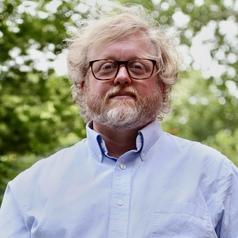
Matthew Wynn Sivils
Professor of American Literature, Iowa State University
Matthew Wynn Sivils is Liberal Arts and Sciences Dean’s Professor of American Literature at Iowa State University, where he also directs the Center for Excellence in the Arts and Humanities.
Among other books, he has published the monograph American Environmental Fiction, 1782–1847 (Routledge, 2014), an edition of Harriet Prescott Spofford’s Gothic novel, Sir Rohan’s Ghost (Anthem, 2020); the critical anthology, Ecogothic in Nineteenth-Century American Literature (with Dawn Keetley, Routledge, 2017); and an edition of Paul Errington’s Of Wilderness and Wolves (University of Iowa Press, 2015).
Sivils’s articles have appeared in various critical anthologies as well as scholarly journals such as ANQ, Literature and Medicine, Nathaniel Hawthorne Review, Southern Quarterly, Studies in American Fiction, and Western American Literature. He recently guest-edited a special, double-issue of Studies in American Fiction on the ecogothic in American literature.
Less ![]()

Matthew B. Jané
PhD Student in Quantitative Psychology, University of Connecticut
I’m a PhD student in Quantitative Psychology at the University of Connecticut. My research involves developing statistical methods and software to aide in meta-analysis and evidence synthesis. Specifically, my current research projects focus on correcting bias in effect size estimates caused by statistical artifacts. My advisor is Dr. Blair T. Johnson and I am a member of the Systematic Health Action Research Program (SHARP). I am also on the editorial board for Psychological Bulletin as a methodological reviewer.
Less ![]()
- Market Data





















